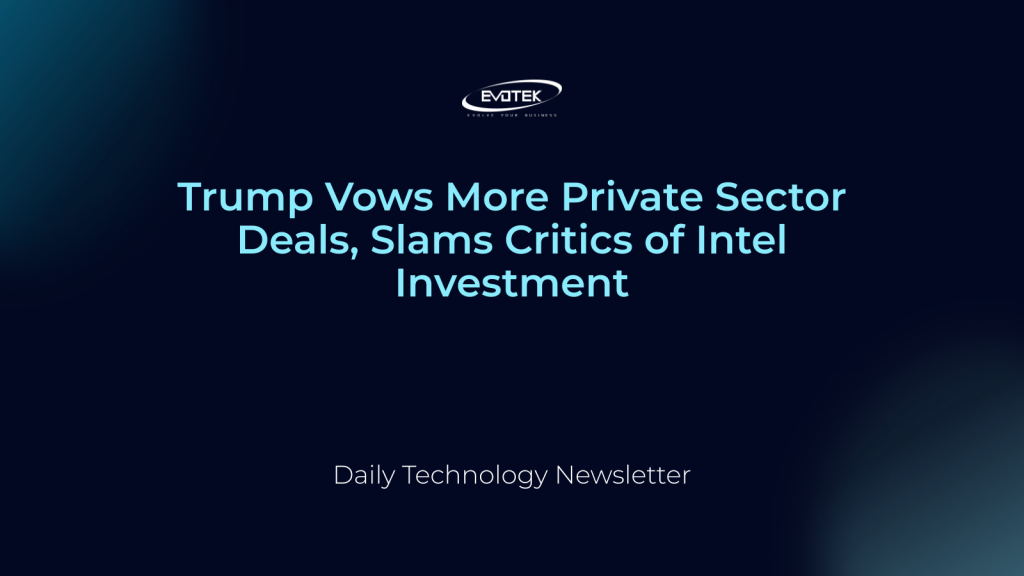President Donald Trump has vehemently defended the U.S. government’s recent acquisition of a 10% stake in Intel, labeling critics as “stupid” and promising to pursue similar private industry “deals” for the nation. This comes amidst growing concerns that such government interventions could inject politics into corporate decision-making.
President Defends Unprecedented Government Investment
In a forceful statement on Truth Social, Trump asserted that the U.S. government “PAID ZERO FOR INTEL,” highlighting the use of existing grant money for the investment. He expressed satisfaction over Intel’s surging stock price, which saw a 6% jump immediately after the deal was announced, declaring it would make “the USA RICHER, AND RICHER.”
These sentiments echo earlier remarks from National Economic Council Director Kevin Hassett, who suggested the government could increasingly invest in private companies to build a “sovereign wealth fund.” The deal positions the U.S. as Intel’s third-largest shareholder, behind Blackrock and Vanguard, both holding 13% stakes.
The U.S. government’s equity stake in Intel totals an estimated $8.9 billion, primarily funded through the Biden-era CHIPS Act and an additional $3.2 billion from a Defense Department grant program. Beyond the equity, Intel also received $2.2 billion in direct grants.
Intel Warns of “Adverse Reactions” from Deal
Despite the government’s optimism, Intel itself issued a cautionary note in an SEC filing. The company warned that the deal could lead to “adverse reactions, immediately or over time, from investors, employees, customers, suppliers, other business or commercial partners, foreign governments or competitors.” This concern is largely attributed to the significant portion of Intel’s revenue—76%—that originates from outside the U.S. Intel also disclosed that it has yet to fully analyze all “financial, tax and accounting implications” of the arrangement.
Widespread Criticism and Political Backlash
The deal has drawn sharp rebukes from various political figures and policy experts. Former Republican presidential candidate Nikki Haley criticized the agreement, tweeting that it “will only lead to more government subsidies and less productivity.”
Scott Lincicome of the libertarian Cato Institute decried the move as “dangerous” and a “dangerous intrusion of government into private enterprise,” expressing fears that corporate decisions could become politically motivated rather than market-driven. Senator Rand Paul (R-Ky.) went further, stating the deal threatens to “hand Democrats a blueprint to expand government ownership over the private sector later,” equating it to “socialism is literally government control of the means of production.”
This government investment is largely considered unprecedented, drawing comparisons to the U.S. bailouts of Chrysler and General Motors during the 2008 financial crisis, which were crisis-response measures rather than strategic equity stakes.
Background: CEO Controversy and Strategic Shifts
The announcement of the Intel deal followed a White House meeting between President Trump and Intel CEO Lip-Bu Tan, who was appointed in March. Interestingly, Trump had previously criticized Tan as “highly CONFLICTED” and publicly urged his “immediate” resignation, citing speculation about Tan’s alleged ties to Chinese companies with connections to the Chinese government. Tan has consistently denied any impropriety, stating in a memo to Intel employees that “a lot of misinformation circulating about my past roles” and insisting he has “always operated within the highest legal and ethical standards.”

 日本語
日本語 한국어
한국어 Tiếng Việt
Tiếng Việt 简体中文
简体中文